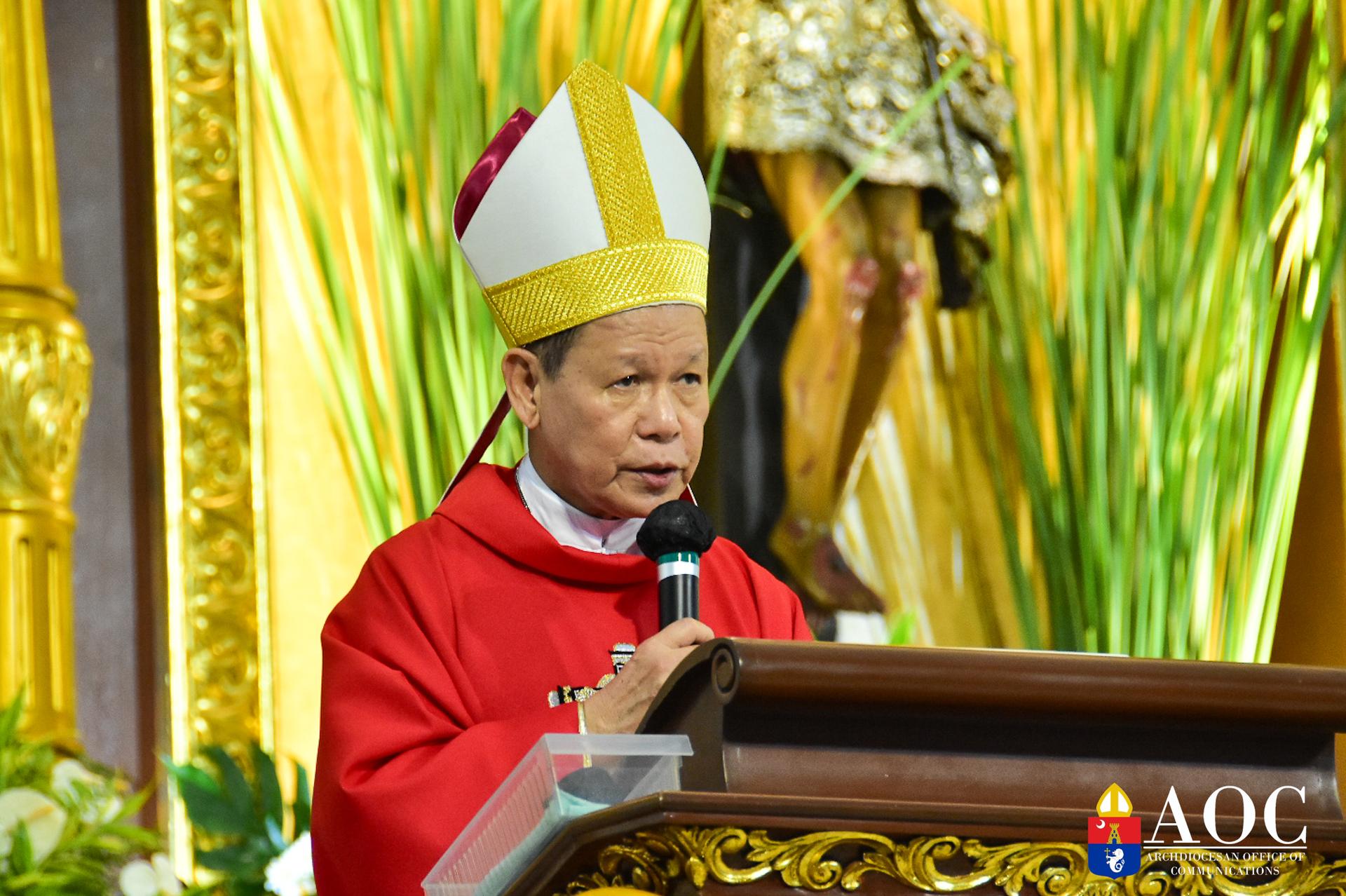MANILA, Philippines – Cardinal Jose Advincula, the archbishop of Manila, appealed for “concrete but peaceful and non-violent actions against corruption,” as the Catholic Church backed anti-corruption protests across the country on September 21.
The Archdiocese of Manila itself has encouraged its members to join thousands of protesters at the People Power Monument in Quezon City, in northern Metro Manila, during the September 21 Trillion Peso March.
The Trillion Peso March protest seeks to condemn the plunder of billions of pesos in anomalous flood control projects. The Filipino Catholic Church, historically an influential player in Philippine politics, is one of the prime movers of the current anti-corruption protests now sweeping Asia’s biggest Catholic-majority country.
The September 21 rally coincides with the 53rd year since the dictator Ferdinand E. Marcos, the father of incumbent President Ferdinand Marcos Jr., declared Martial Law on September 21, 1972. The Marcos dictatorship, which lasted for 14 years, ended on February 25, 1986, after the dictator was ousted in the church-backed People Power Revolution.
One of the key players in the 1986 revolt was the late Manila archbishop Cardinal Jaime Sin.
In a pastoral letter issued on Monday, the current Manila archbishop said the “catastrophe” caused by corruption “is shaking the soul of our country and has awakened the seemingly lethargic resolve of many Filipinos to make a stand against corrupt practices and to demand accountability from the guilty.”
“Corruption is more than just a manifestation of greed. It is a concrete form of evil. If left unchecked, society will be ruined by it, including the core of our humanity, that is, our dignity,” said Advincula, 73.
The Manila archbishop said that “fortunately, we can still turn our apathy into empathy before we drown in the waters of corruption.”
“The many organized rallies denouncing corruption and demanding accountability are not merely pockets of political resistance. They are not just expressions of disgust and anger directed at the perpetrators of one of the vilest scams in the history of our nation. They are actually manifestations of the people’s collective moral conviction and an exercise of their rightful obligation to suppress the proliferation of evil in our midst,” Advincula said.
The Manila archbishop said the Catholic Church, illumined by social teachings, must guide and inspire the people. It must also “ensure that the political squabbles resulting from this mess will not make corruption merely another political and partisan concern.”
“Politics is not hopelessly irredeemable,” said the cardinal, a canon lawyer who graduated from the Angelicum in Rome.
“One with my brother bishops in the Catholic Bishops’ Conference of the Philippines, I, therefore, enjoin all parishes, shrines, chaplaincies, mission stations, and religious communities to conduct prayerful reflections, circles of discernment, and concrete but peaceful and non-violent actions against corruption,” he continued.
Other church officials expressed support for the September 21 anti-corruption protests.
In the Archdiocese of Lingayen-Dagupan, which is led by Cardinal Sin’s longtime aide, candle lighting ceremonies will be held on September 21 in every parish, Catholic school, and village chapel. This serves “to ritualize our collective stand against corruption.”
Archbishop Socrates Villegas of Lingayen-Dagupan, former private secretary to Cardinal Sin, said it is important to protest against corruption, but repentance is more important.
“We must protest and be angry against corruption. It is righteous anger. It is a Christian duty,” said Villegas. He added, however, that “something is better than protest.” “We must offer our lives as the antithesis, as the enemies of robbers and the plunderers in civil service.”
“We need a revolt, a revolt not just against a corrupt system, but a revolt against the corrupt hearts and souls within us that enable the corrupt to prosper,” said Villegas, 64.
He challenged his flock to “be angry at the corruption within,” because “we all have contributed to the system.”
Protest is good but repentance gives it power. Change is good but atonement makes it lasting,” Villegas said.













